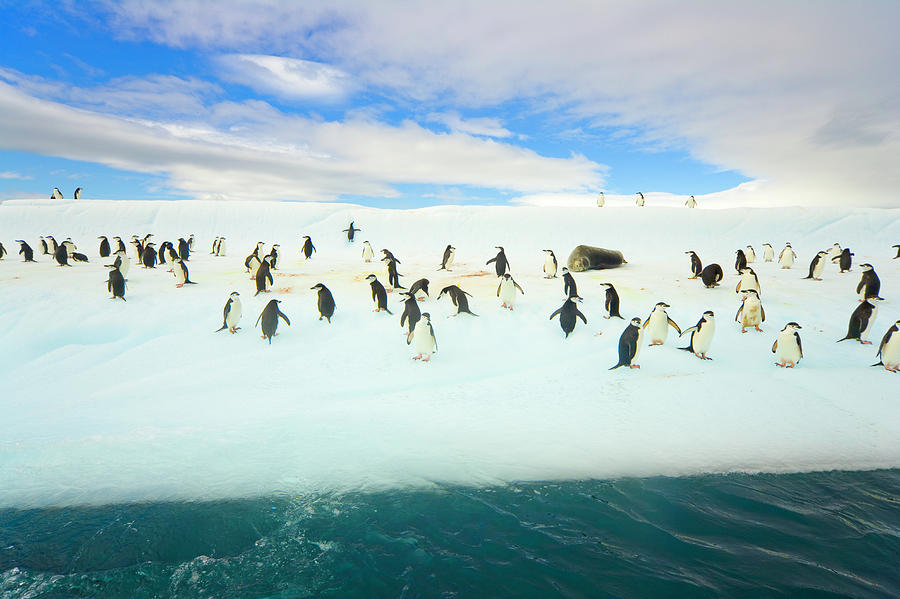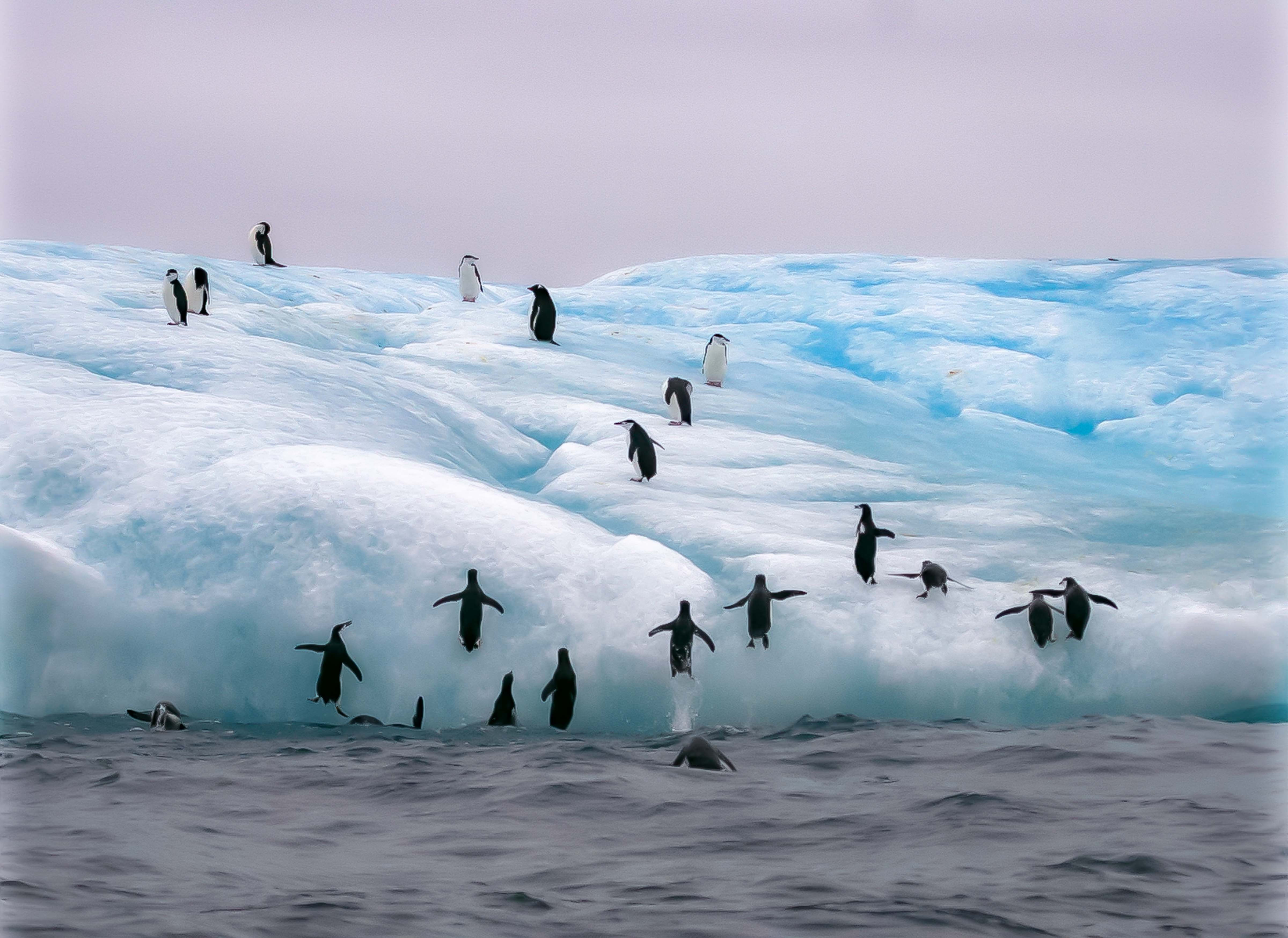

SEE ALSO: Watch: The Largest Glacier Calving Ever Captured

Luckily, according to co-author Chris Fogwill of the UNSW Climate Change Research Centre, there was some good news for the colony.

In a striking contrast, the penguins living on the eastern side of the bay, just eight kilometers (five miles) from the iceberg, were thriving, the scientists said. They can barely survive themselves, let alone hatch the next generation. The ones that are surviving are clearly struggling. “The ones that we saw at Cape Denison were incredibly docile, lethargic, almost unaware of your existence. “It's eerily silent now,” UNSW's Professor of Climate Change and Earth Sciences Chris Turney, who led the 2013-2014 Australasian Antarctic Expedition, told the Sydney Morning Herald. Kerry-Jayne Wilson of the West Coast Penguin Trust said in a statement. “The Cape Denison population could be extirpated within 20 years unless B09B relocates or the now perennial fast ice within the bay breaks out,” the researchers wrote in their study.ĭuring the researcher’s census in December 2013, “hundreds of abandoned eggs were noted, and the ground was littered with freeze-dried carcasses of previous season’s chicks,” lead author Dr. So why was the iceberg grounding so devastating? Unfortunately, due to the location where the iceberg is currently settled, the penguins had to walk more than 60 kilometers (37 miles) just to find food, which impeded their breeding attempts. However in December 2013, the population was down to an estimated 10,000 - a heartbreaking drop! SEE ALSO: Burning All Our Fossil Fuels Would Melt Antarctica Entirely In February 2011, the Adelie penguin population, located at the bay’s Cape Denison was measured at roughly 160,000. The iceberg, named B09B, is 100 square kilometers (38.6 square miles) in size, and it grounded in Commonwealth Bay in East Antarctica in December 2010. Unfortunately, it forced them to make a long journey just to find food, which led to devastating consequences, according to scientists from the University of New South Wales’ (UNSW) Climate Change Research Centre and New Zealand’s West Coast Penguin Trust in a newly published study in Antarctic Science. This is really sad to hear - nearly 150,000 penguins died after an enormous iceberg grounded near their colony in Antarctica. Too much ice in Antarctica can be just as disastrous as not enough ice in the Arctic.


 0 kommentar(er)
0 kommentar(er)
